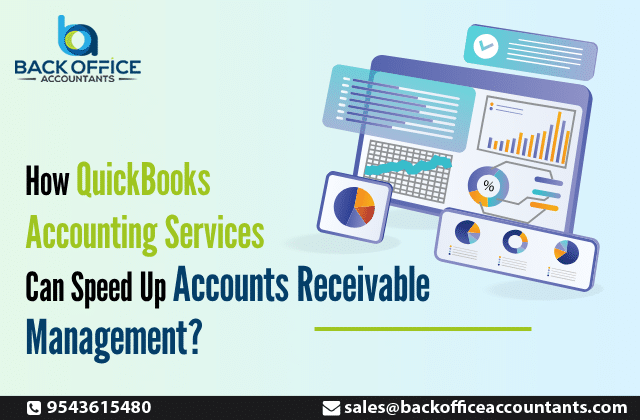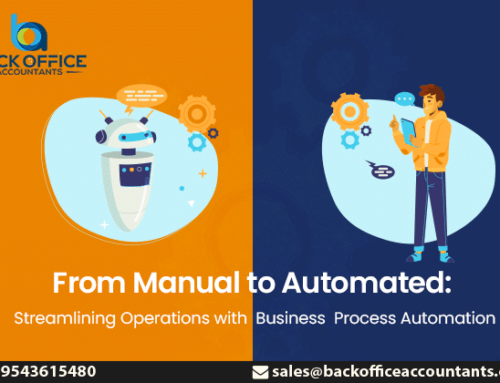In most cases, competitive businesses need to streamline their accounts receivable administration to effectively maintain healthy cash flow and financial standing. QuickBooks accounting services for small businesses provides a complete solution to effectively speed up this procedure. Organizations may manage payments in real time, automate invoicing, and quickly follow up on unpaid bills by using QuickBooks.
Furthermore, QuickBooks offers thorough analytics and statistics that help companies understand the performance of their accounts receivable and make wise decisions. In the long run, QuickBooks Accounting Services are usually essential for maximizing the efficacy of accounts receivable administration, ensuring prompt payments, and improving overall financial management.
Real-Time Payment Tracking
Businesses can quickly and precisely track incoming payments using QuickBooks Accounting Services’ real-time payment tracking feature. This tool allows organizations to monitor their accounts receivable in real time and provides them with instant visibility into payment situations. QuickBooks bookkeeping makes sure that every payment you receive is instantly reflected in the system by connecting with a variety of payment methods and financial institutions.
This lowers the possibility of mistakes brought on by missing or delayed payments and does away with the requirement for human data entry. Furthermore, since both parties have access to the most recent data on payment statuses, real-time payment tracking improves transparency between companies and their customers. This transparency promotes confidence and makes it easier to communicate any questions or inconsistencies about payments.
Businesses may also precisely estimate cash flow by using real-time payment tracking, which gives them more confidence when planning for future investments or costs and helps them make well-informed financial decisions.
All things considered, QuickBooks accounting enables companies to effectively streamline their accounts receivable administration procedures and maximize their financial operations by offering a clear and instantaneous picture of payment activities.
Batch Processing
- Time Efficiency: Compared to processing each transaction separately, batch processing saves organizations a lot of time by enabling them to handle several invoices or payments at once.
- Streamlined Workflow: Batch processing facilitates the accounts receivable management workflow by combining related processes, such as processing payments or mailing invoices, into one group.
- Enhanced Productivity: Employees may concentrate on more valuable activities because batch processing removes the need for frequent task switching, which increases overall productivity.
- Increased Accuracy: Since data is input and handled consistently throughout several transactions, processing transactions in batches lowers the possibility of mistakes.
- Scalability: Batch processing works well for companies of all sizes since it is scalable and can effectively handle high transaction volumes.
- Enhanced Organisation: Batching transactions makes things more organized and makes it possible to track and manage accounts receivable operations more effectively.
- Improved Resource Allocation: Businesses may more efficiently assign workers and resources to handle several transactions at once thanks to batch processing, which maximizes resource utilization.
- Consistency: Batch processing ensures consistent transaction handling, preserving process regularity and lowering outcome variability.
- Integration Capabilities: Batch processing functions are available on many accounting software platforms, such as QuickBooks, and they allow for easy integration with other company systems, improving overall operational efficiency and data quality.
Reporting and Analytics
Analytics and reporting are essential to managing accounts receivable because they give companies insightful information about their financial health and client payment patterns. Businesses may obtain thorough reporting tools that provide an in-depth examination of their accounts receivable data with QuickBooks Accounting Services. These reports offer a concise summary of aging receivables, payment statuses, outstanding bills, and long-term trends.
Businesses can identify patterns and trends in their accounts receivable by using reporting and analytics tools. This helps them make better decisions to improve cash flow and collections. For example, tracking key metrics like days sales outstanding (DSO) can show how effectively they collect payments from clients.
Reporting insights also help businesses improve inventory management, negotiate better terms with suppliers, and forecast cash flow. In short, analytics give businesses a clear view of their accounts receivable, highlight areas for improvement, and support strategies for financial growth and stability.
Back Office Accountants provide a complete solution to enhance accounts receivable management and simplify financial processes. Their expertise in batch processing, real-time payment tracking, accounts payable, and reporting helps businesses speed up receivables and maintain healthy cash flow.
Making use of innovative solutions like QuickBooks bookkeeping and accounting services ensures on-time payments, more financial transparency, and well-informed decision-making. A partnership with Back Office Accountants might lead to success in the USA market and a new level of financial management.







